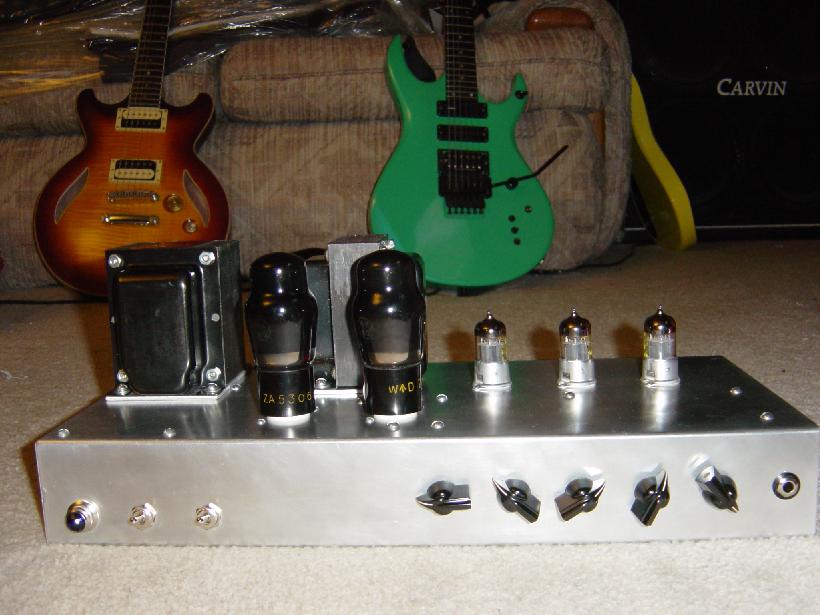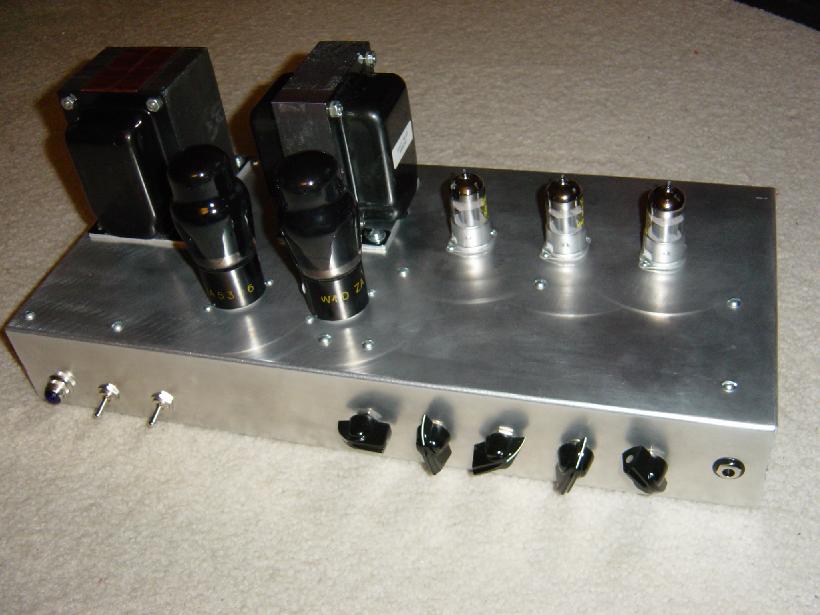|
Pics Of My Latest Tube Amp Build.... A Trainwreck Express inspired amp with 1+2 topology
This amp makes it really hard to put the guitar down. Sounds KILLER through a 4x12 cab, and it'll cut through anything
in it's path! It's a very harmonically rich amp, with nearly instantaneous (but controllable) feedback when desired. Set
the amp controls and forget about it, as you can control it very nicely from the guitar. In fact, the guitar's volume control
behaves basically like a 'Drive' control, without affecting the volume too much! You can hang out right on the edge, or go
all the way into sonic mayhem and bombast! It's very touch responsive too, in the way it responds to your approach and
attack.
I'm not sure how close this amp actually comes to a real 'Wreck, but it sure does smoke! It's also been gig-proven, and
has the stamp of approval from a diehard Top Hat user. Of all the tube types I've tried in it, I actually like the EL34's the
very least of all (this took me totally by surprise!), followed by: 6V6, and then 6L6, with KT66's being at the top of the list.
The KT's have a very rich and deep response, and really sound great all the way around.
(I'd like to say thanks to Mr. Ahola for providing the initial idea from which this evolved, and a very big thanks to Ken Fischer
for building the original Trainwreck legends....I'm not worthy!!!)
I'd also like to thank Gerald Weber for changing my definition of tone. I met him at a guitar show, demoing his amp line.
This ultimately inspired me to begin 'Rolling My Own' amps....
|
|

Closeups...front, and front right. Less than optimal clearance factors (self-inflicted of course, by using too small of a chassis) dictated locating the switches and pilot light down low on the front panel, since I really wanted to keep 'em to the far left side.
|
Image
|
Image
|
|

The Guts. This is proof that poor planning CAN evolve into something good....the mainboard is shorter than originally planned and built... it got hacked in two for layout and routing purposes! *NOTE - I have since went to a dual-bias control scheme, utilizing two independant circuits and pots. I had considered trying a 'balance' pot to shift the voltage output of a standard bias circuit, but haven't gone that route yet. No reason it should'nt work good though.
|
Image
|
Image
|


